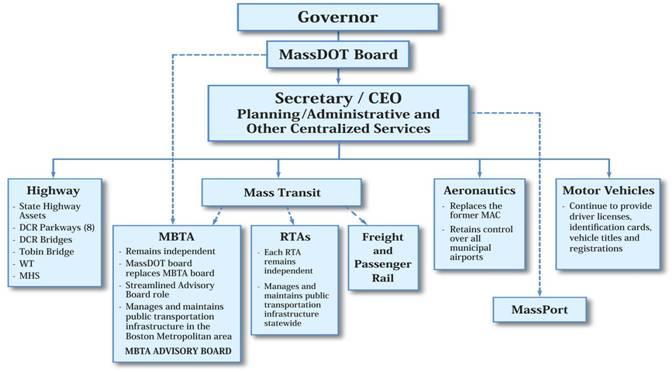Massachusetts has announced a considerable investment in its transportation infrastructure as part of the Fiscal Year 2026 budget, allocating $8 billion to enhance and expand transit systems across the state. This unprecedented funding aims to address critical needs in public transportation, road maintenance, and modernization projects, signaling a major step forward in tackling congestion, improving safety, and supporting economic growth throughout the Commonwealth.
Table of Contents
- Massachusetts Commits Eight Billion Dollars to Transportation in Fiscal Year 2026
- Focus on Infrastructure Upgrades Aims to Enhance Safety and Efficiency
- Investment Prioritizes Public Transit Expansion and Climate Resilience
- Experts Urge Continued Funding for Innovative Mobility Solutions
- Final Thoughts
Massachusetts Commits Eight Billion Dollars to Transportation in Fiscal Year 2026
The Fiscal Year 2026 transportation budget marks a important investment in Massachusetts’ infrastructure, allocating a robust $8 billion to enhance the state’s transit system. This major funding boost is designed to tackle urgent repairs, expand public transit options, and improve road safety across urban and rural communities. Key focus areas include modernization of aging bridges, upgrades to commuter rail lines, and support for innovative transportation technologies that promise to reduce congestion and emissions.
Funds will be distributed with targeted priorities, emphasizing:
- Public Transit Enhancement: Increased service frequency and accessibility improvements to accommodate growing ridership.
- Highway and Bridge Rehabilitation: Addressing critical infrastructure to ensure long-term durability and commuter safety.
- Green Transportation Initiatives: Investment in electric vehicle charging networks and incentives for sustainable travel methods.
This comprehensive approach aims to foster economic growth, improve quality of life, and support Massachusetts’ commitment to environmental stewardship.
Focus on Infrastructure Upgrades Aims to Enhance Safety and Efficiency
Massachusetts is directing a significant portion of the FY2026 transportation budget towards critical infrastructure improvements designed to both enhance safety for commuters and optimize operational efficiency. This includes comprehensive upgrades to aging bridges, expansion of traffic management systems, and modernization of public transit facilities to reduce congestion and improve reliability.The state prioritizes smart technology integration to provide real-time data and streamline traffic flow, ultimately reducing commute times and accident risks.
Key areas of focus include:
- Bridge rehabilitation and replacement to meet modern safety standards
- Advanced traffic signal coordination and adaptive control systems
- Enhanced pedestrian and cyclist infrastructure to promote safer, multi-modal transport options
- Investment in public transit upgrades aimed at increasing capacity and accessibility
These targeted investments are expected to reduce bottlenecks, improve emergency response times, and strengthen the overall resilience of the transportation network against future challenges. By blending robust engineering with innovative technology, Massachusetts is setting a new standard for infrastructural safety and efficiency in the region.
Investment Prioritizes Public Transit Expansion and Climate Resilience
The FY2026 budget underscores a robust commitment to enhancing public transit infrastructure across the Commonwealth. This decisive investment focuses on expanding rail and bus networks to increase accessibility, reduce commute times, and promote equitable transportation options for all residents. Key projects include upgrades to existing transit lines, increased frequency of service, and the introduction of new routes aimed at connecting underserved communities. These initiatives are expected to not only improve daily travel but also foster economic growth by facilitating workforce mobility.
In parallel, significant funds have been directed toward strengthening the state’s climate resilience through transportation projects that incorporate sustainable practices. The budget prioritizes:
- Infrastructure designed to withstand extreme weather events, such as elevated tracks and flood-resistant facilities.
- Investment in electric buses and low-emission vehicles, reducing the carbon footprint of public transit fleets.
- Enhancement of green spaces alongside transit corridors, improving air quality and urban resiliency.
These efforts align with Massachusetts’ broader goals to combat climate change while ensuring transit systems remain reliable and efficient in the face of environmental challenges.
Experts Urge Continued Funding for Innovative Mobility Solutions
Transportation experts emphasize that sustained investment in innovative mobility initiatives is critical for Massachusetts to address challenges posed by rapid urbanization and evolving commuter needs. Public transit improvements not only cut down travel times but also empower workers by enhancing their economic opportunities and bargaining power. Experts highlight that investments in technology-driven solutions such as Bus Rapid Transit (BRT) and accessible infrastructure ensure broader economic benefits, fostering urban environments that are both efficient and inclusive.
Key priorities driving calls for continued funding include:
- Expanding dedicated transit lanes to improve efficiency and reduce congestion
- Implementing smart transportation technologies to optimize routes and service reliability
- Prioritizing accessibility for persons with disabilities to reduce social and economic isolation
- Supporting climate-resilient and low-carbon transit solutions aimed at sustainability goals
As Massachusetts positions itself as a leader in modern transportation, experts warn that cutting back on these innovative mobility programs could hinder the state’s ability to harness economic gains and meet the mobility demands of a growing population. The $8 billion allocation must therefore be leveraged to sustain and scale promising transit models that have demonstrated significant societal and environmental returns.
Final Thoughts
With the allocation of $8 billion for transportation in the FY2026 budget, Massachusetts solidifies its commitment to enhancing infrastructure and supporting sustainable transit development across the state. This significant investment is poised to address critical needs, improve public safety, and foster economic growth, reflecting the management’s focus on building a resilient and efficient transportation network for the future. As the fiscal year progresses, stakeholders and residents alike will closely monitor the implementation and impact of these funds on the Commonwealth’s mobility and connectivity.

